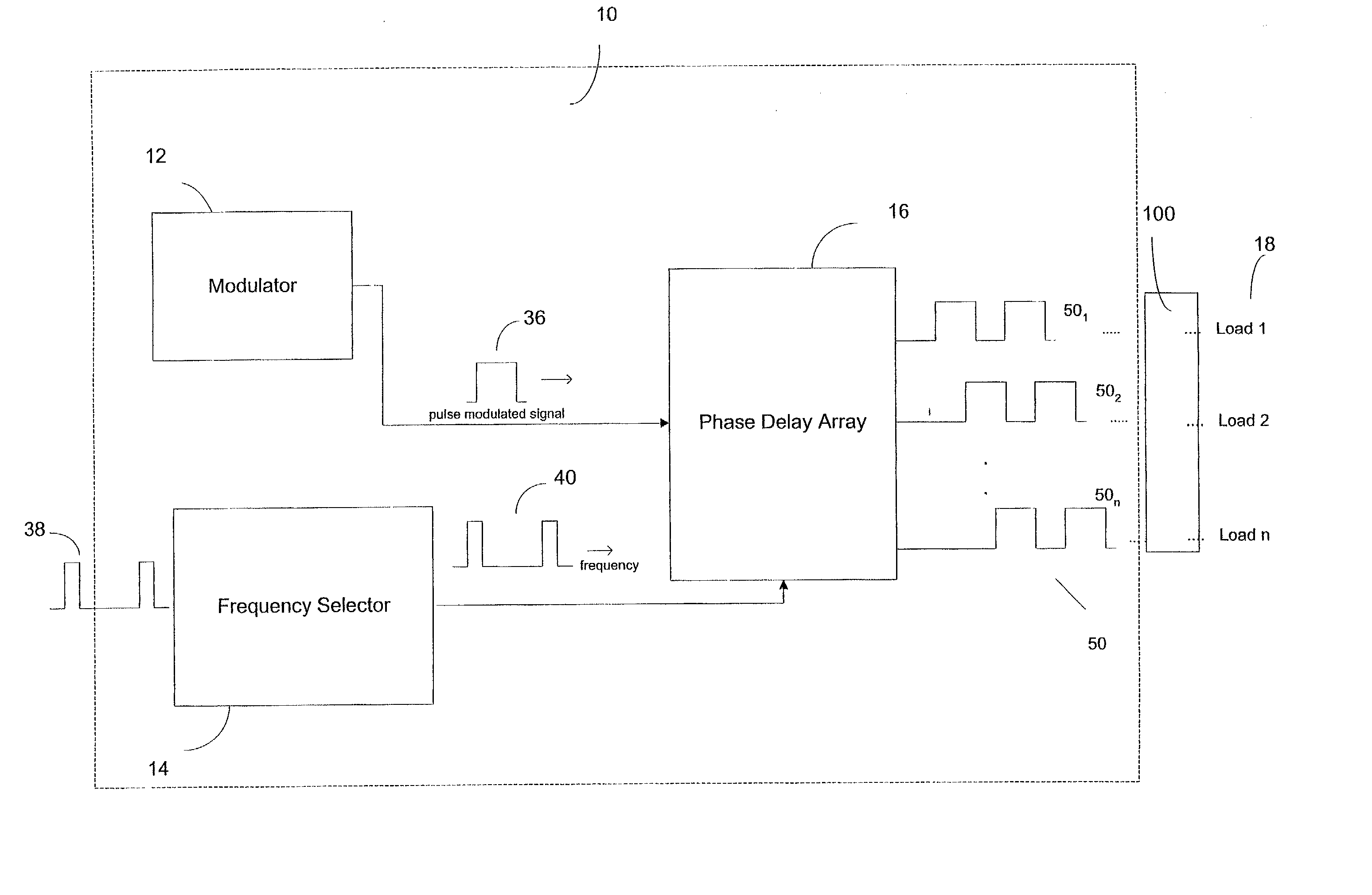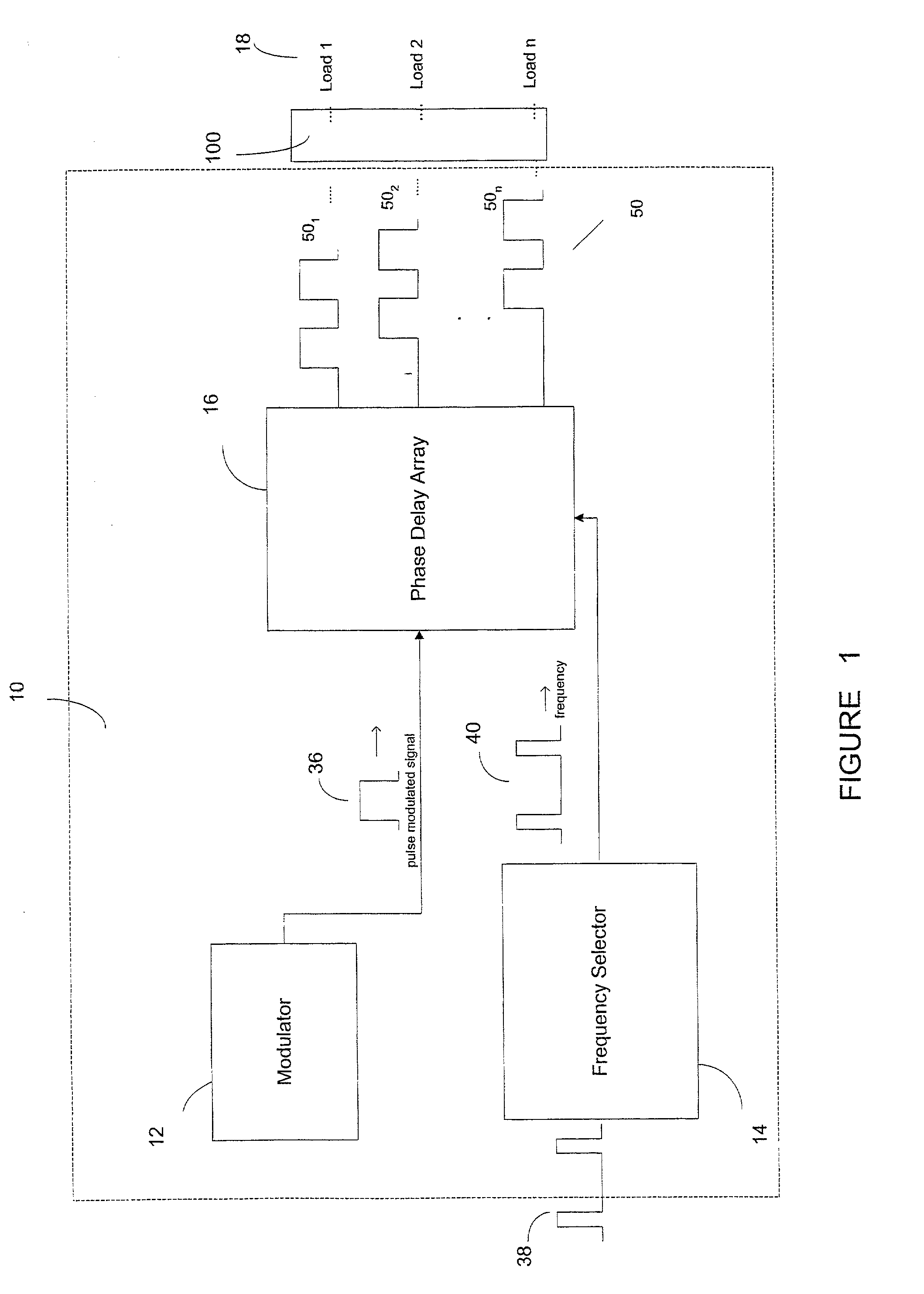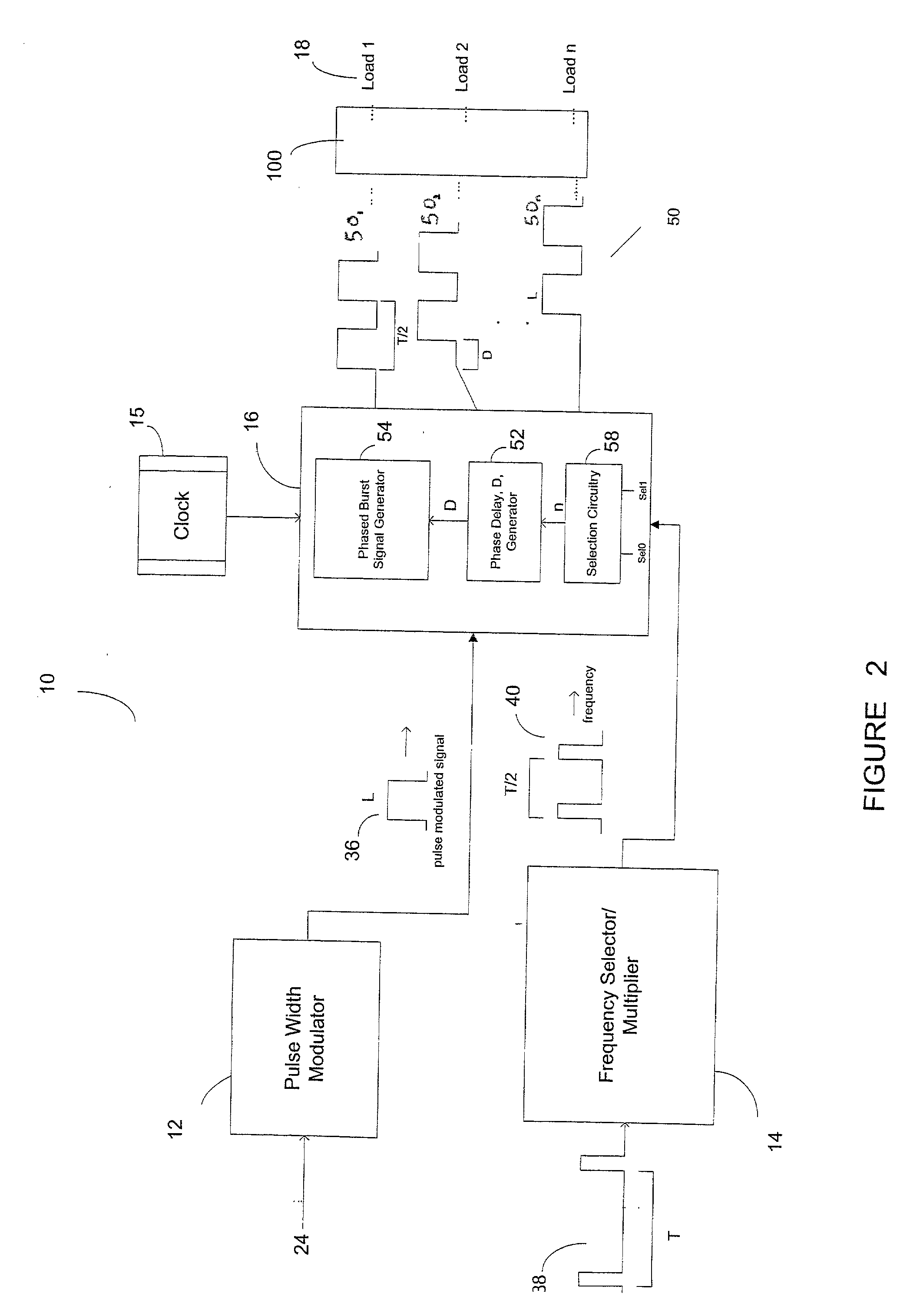Sequential burst mode activation circuit
a burst mode and activation circuit technology, applied in the direction of electric variable regulation, process and machine control, instruments, etc., can solve the problems of current ripple, inverter performance retardation, and discharging becoming unstable, so as to eliminate instantaneous high current ripple and noise
- Summary
- Abstract
- Description
- Claims
- Application Information
AI Technical Summary
Benefits of technology
Problems solved by technology
Method used
Image
Examples
Embodiment Construction
[0034] The following description will reference a burst mode regulating circuit for a plurality of cold cathode fluorescent lamps (CCFLs). CCFLs are arranged, for example, in large panels for displays. Typically, large CCFL panels each utilize a minimum of 6 lamps, and the present invention will describe a burst mode activation circuit with 6 or more CCFls. Of course, the present invention is not to be limited by a minimum number of loads, nor is it to be limited to CCFLs or any particular type of loads.
[0035] FIG. 1 is a top-level block diagram of an exemplary sequential burst mode signal generation system 10 of the present invention. As a general overview, the sequential burst mode signal generation system 10 operates to generate phase-shifted burst mode signals 50 and sends these burst mode signals to drivers 100 to provide time-delayed regulation of power to a plurality of loads 18. "Burst mode", as used herein and as is understood in the art, generally means regulation of power...
PUM
 Login to View More
Login to View More Abstract
Description
Claims
Application Information
 Login to View More
Login to View More - R&D
- Intellectual Property
- Life Sciences
- Materials
- Tech Scout
- Unparalleled Data Quality
- Higher Quality Content
- 60% Fewer Hallucinations
Browse by: Latest US Patents, China's latest patents, Technical Efficacy Thesaurus, Application Domain, Technology Topic, Popular Technical Reports.
© 2025 PatSnap. All rights reserved.Legal|Privacy policy|Modern Slavery Act Transparency Statement|Sitemap|About US| Contact US: help@patsnap.com



